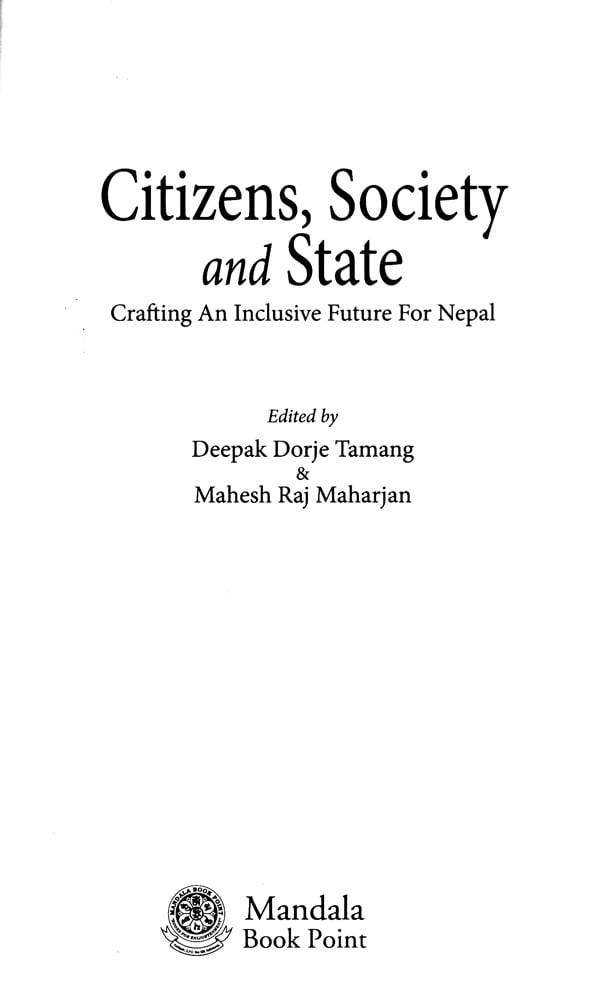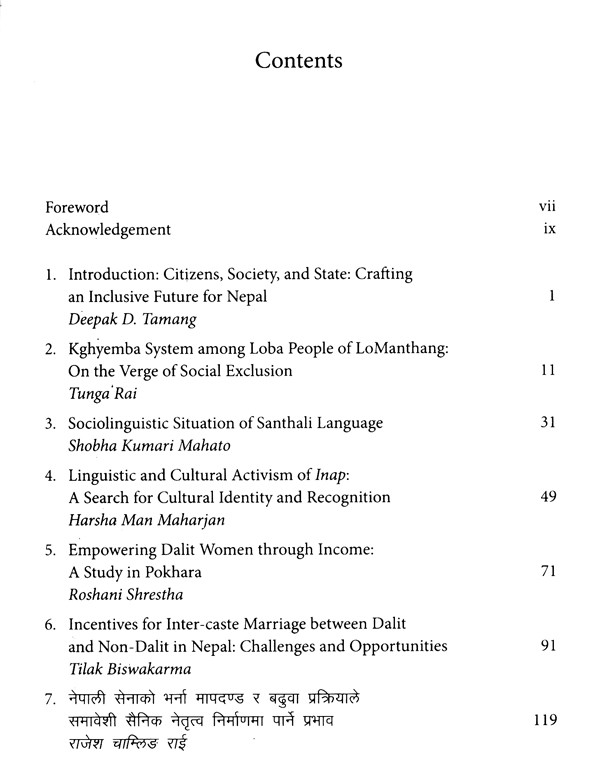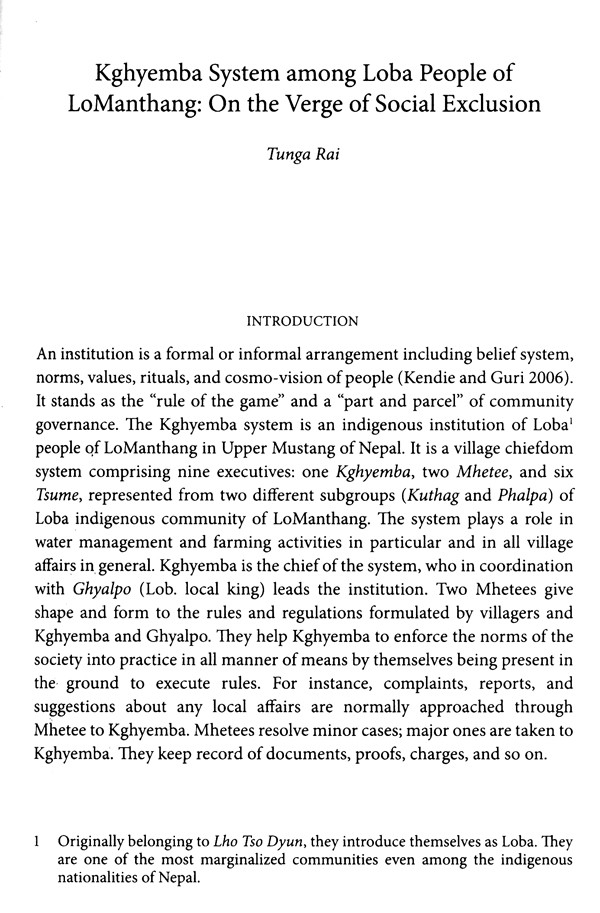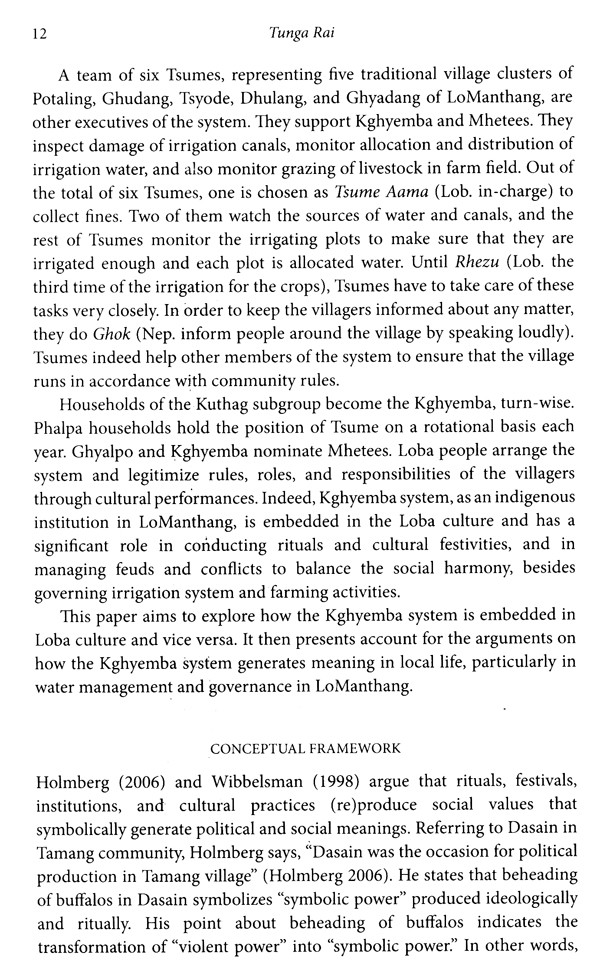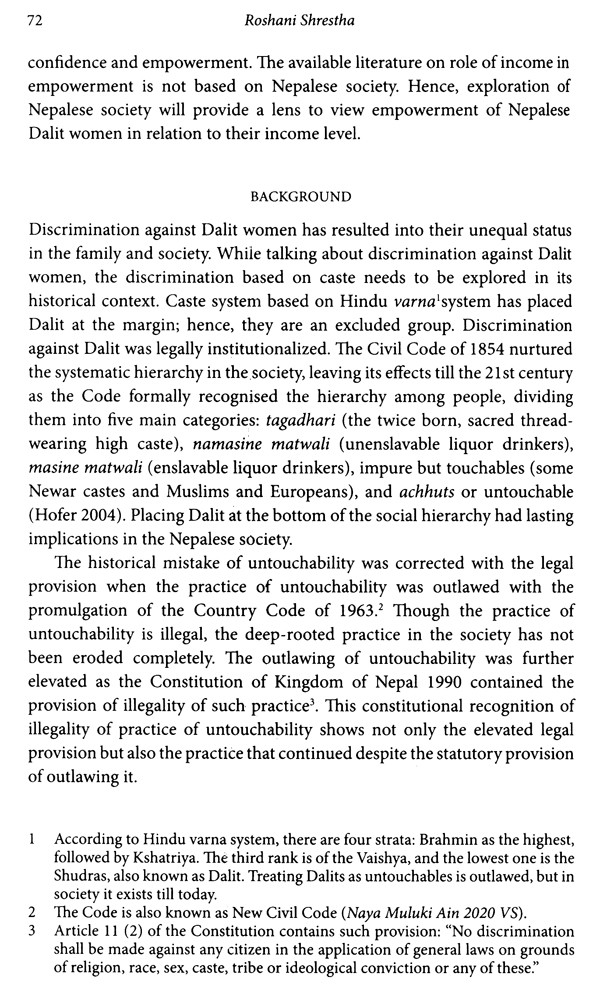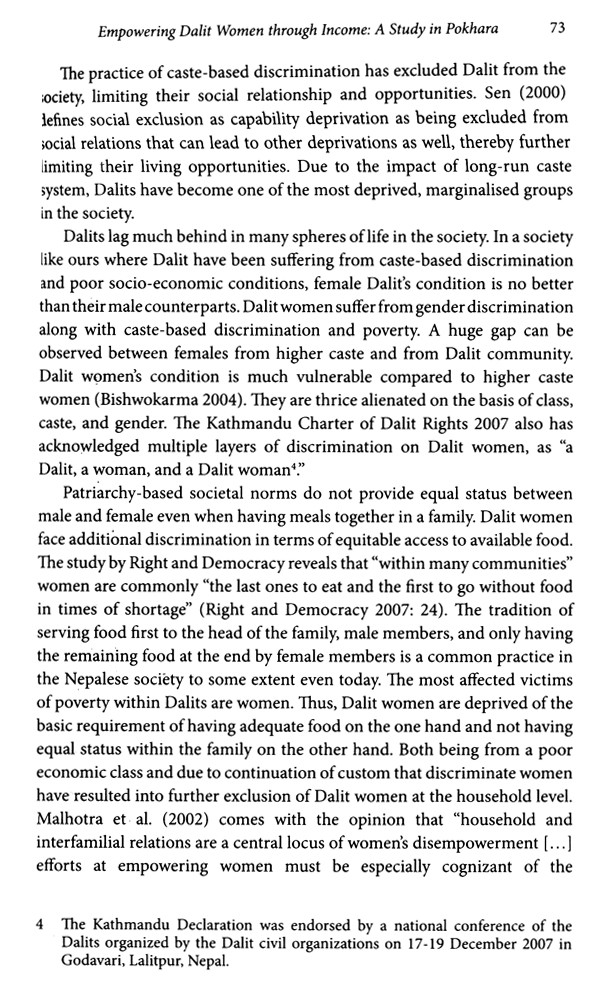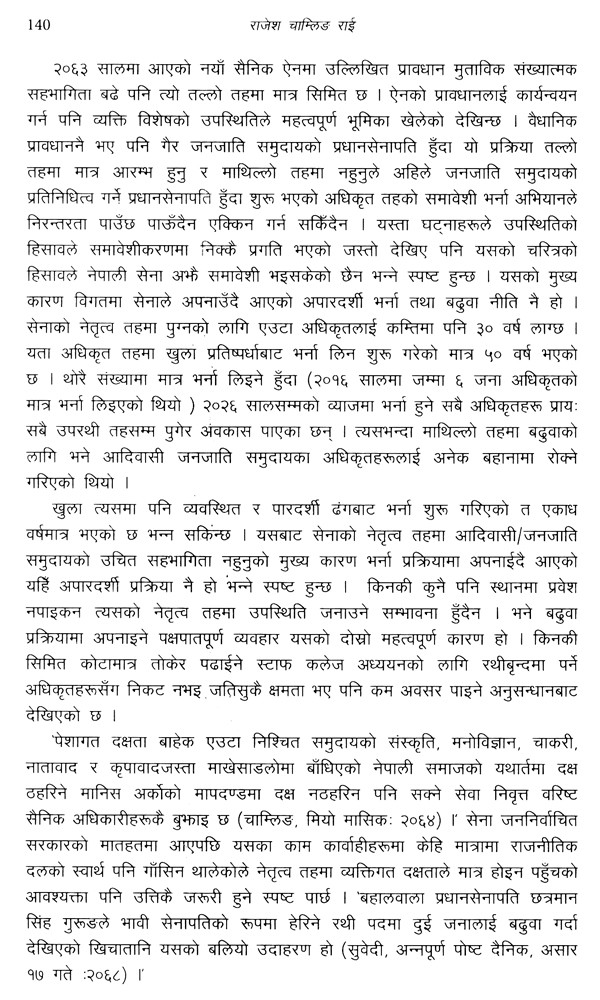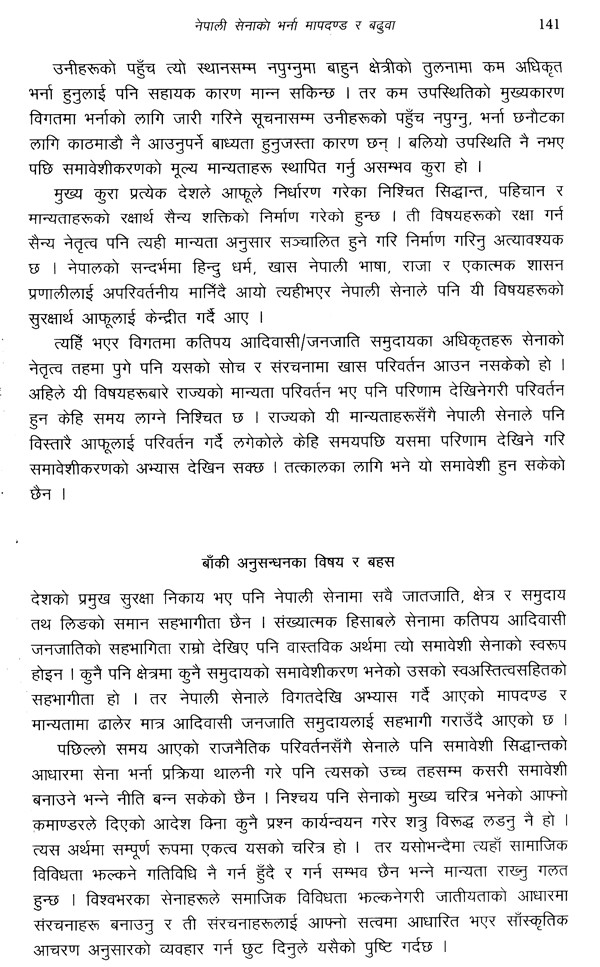
Citizens, Society and State- Crafting An Inclusive Future For Nepal
Book Specification
| Item Code: | UAT789 |
| Author: | Deepak Dorje Tamang and Mahesh Raj Maharjan |
| Publisher: | Mandala Book Point, Nepal |
| Language: | Nepali and English |
| Edition: | 2014 |
| ISBN: | 9789994655236 |
| Pages: | 160 |
| Cover: | PAPERBACK |
| Other Details | 8.50 X 5.50 inch |
| Weight | 220 gm |
Book Description
Social Inclusion Research Fund (SIRF) was started in 2005 on the initiative of civil society of Nepal and the Royal Norwegian Embassy in Kathmandu. Government of Nepal welcomed this initiative as highly relevant and endorsed the formation of SIRF Screening Committee represented by civil society, international scholars, and government agencies. SNV Nepal was entrusted with the task of managing SIRF, which has now a track record of having completed 303 individual researches and two major institutional research collaborations. SIRF has been supporting Harka Gurung Research Fellowships and Mathias Moyersoen Research Apprenticeships to conduct research on social inclusion and exclusion. SIRF seeks to produce high-quality and critical research on causes of social exclusion in Nepal and ways to accommodate and manage diversity, to make social science research more relevant to the excluded and disadvantaged groups and their agendas, and to ensure that research more effectively contributes to policy and public debate and strengthen "stable democracy".
When the women's inclusion movement was going on globally, there was also a global impetus to ensure the rights of the child; rights of the aboriginals, indigenous nationalities, and tribes; and people in difficult circumstances such as with disabilities, inter alia.
**Contents and Sample Pages**
